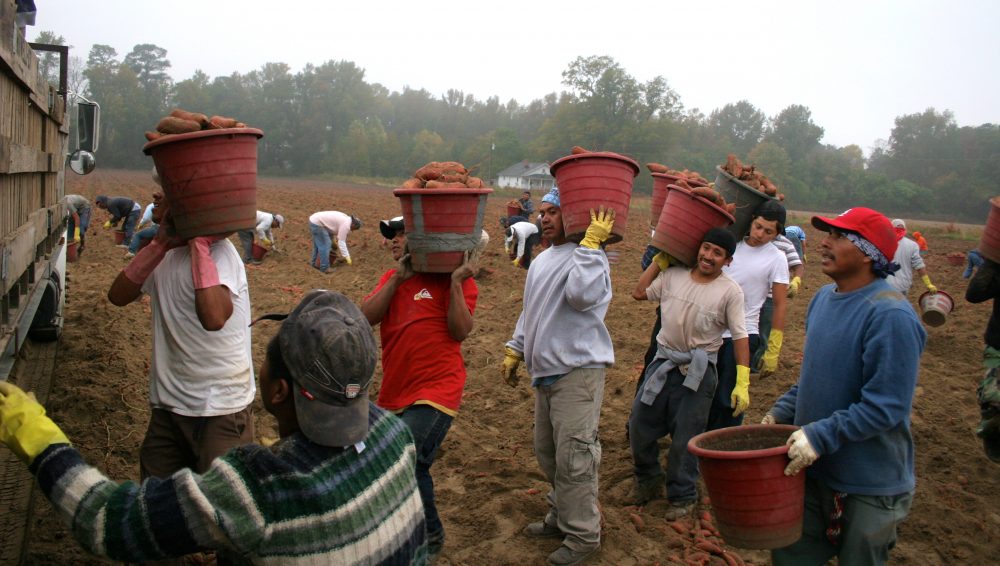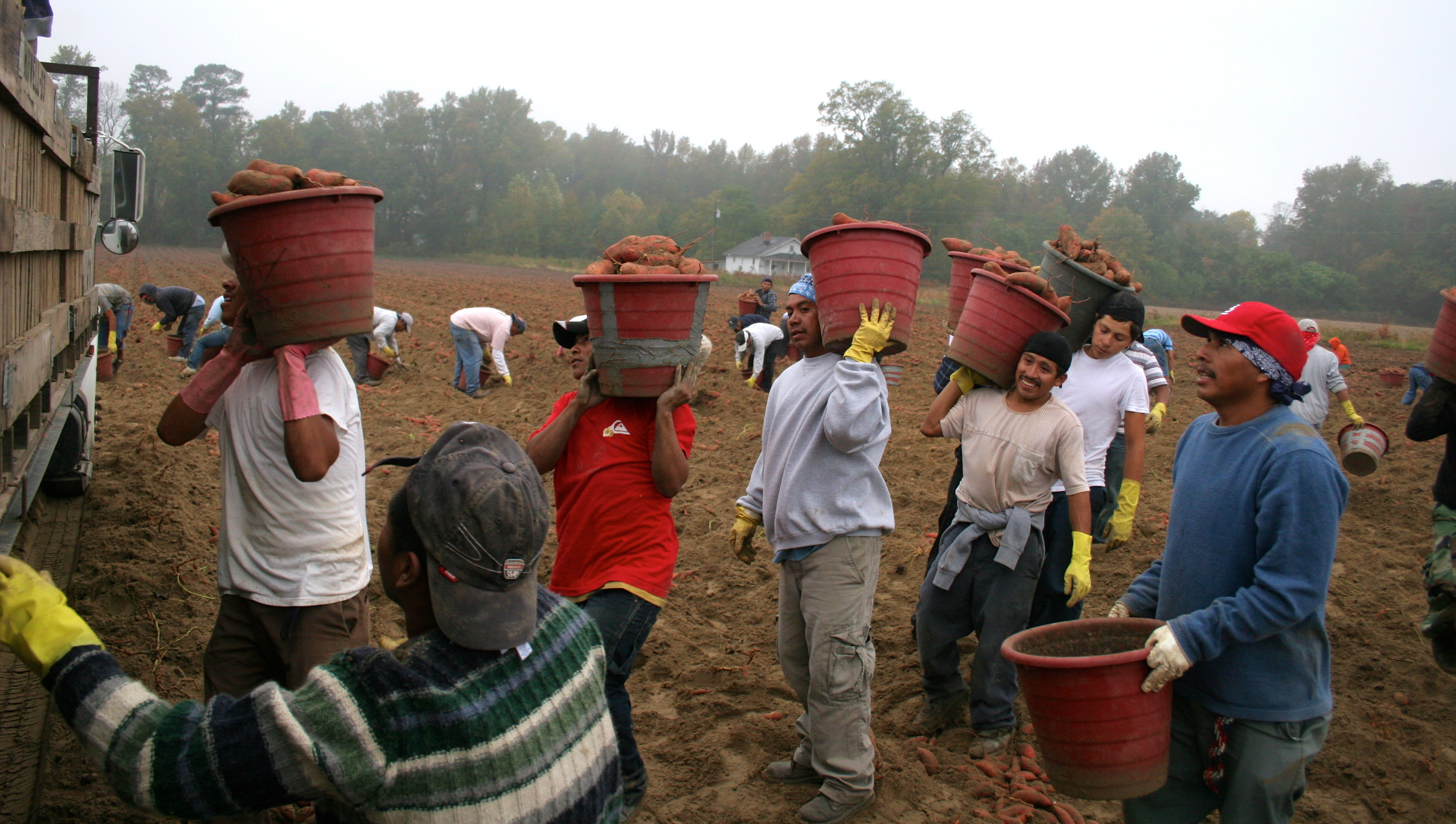
Governor Pat McCrory recently issued a proclamation declaring September 15-21 to be “Farm Safety and Health Week.” Here at the NC Council of Churches, we’ve been working with rural communities and farmworkers for decades, and we are well aware of the need for safety on our state’s farms. Our friends at NC FIELD have issued a powerful press release calling attention to the need for not only words from the Governor’s mansion but for real actions by all NC agencies and growers to make farmwork safer and to close the child labor loophole that puts kids in danger.
NC FIELD welcomes the proclamation made by Governor McCrory’s office regarding “Farm Safety and Health Week” from September 15-21, 2013. However, rural residents whose labor is responsible for 77 billion dollars in state revenue, as well as a significant portion of the global food supply, need more than this acknowledgement. If the sentiments of this proclamation are to inspire action, Governor McCrory must alleviate the greatest harms to North Carolina’s agricultural workers: poor working conditions and child labor.
Year after year, farmwork is one of the most dangerous occupations in the US, and our state is no exception. Here in North Carolina, it is common for workers to endure unnecessary exposure to pesticides, have no access to fresh water and bathrooms, work long hours doing repetitive movements without proper breaks, and suffer heat stress and musculoskeletal injuries. A 2012 Wake Forest University study revealed that after long days in the field, many farmworkers return to substandard housing that doesn’t meet the already low requirements for sanitation and safety.
We see these poor conditions on a regular basis, but we also see farm owners who meet safety standards, pay their workers a fair wage, and have a profitable business. The occupational hazards on many farms can be avoided with proper oversight by state agencies and willing compliance by farm owners and labor contractors. Governor McCrory has the power to help make this happen.
Farmworkers do not enjoy the same social safety nets as other workers; if they complain about an injury on the job, or speak up about basic labor violations they often will be harassed, threatened or run-off by their labor contractors. Getting worker’s comp is almost impossible for undocumented workers, not because they aren’t able to under law, but because they are unaware of their rights, scared to speak up, or coerced into not filing a complaint. Often, when parents suffer an injury and are unable to work, their children are forced into the fields to make up for the loss in family income.
Children are especially susceptible to farmwork-related injuries, but it is legal for a child as young as 10 to work on a farm, and we see farmworker children of all ages in the fields. Industrial farms have greater occupational hazards compared to family farms from a generation ago. According to the US Department of Agriculture, in 2009 there were 15,876 farmwork injuries to youth under the age of 20, 6,912 of them to children aged 10 to 15. These numbers are nationwide, but North Carolina leads the US in tobacco and sweet potato production and is a major producer of other hand-picked crops, so we must assume that a considerable amount of these injuries are in our state. On-farm injuries are obvious, but other effects take longer to manifest. Exposure to nicotine, heat, and chemicals can cause a variety of long-term health problems and drastically reduce life expectancy, and chronic musculoskeletal injuries are very common in young workers with growing bodies.
Click here to continue reading the full press release.
In a deeply moving Op-Ed article on Monday, Margaret Wurth – a UNC grad – further highlights the disconnect between talk about farm safety and recent actions by the General Assembly:
North Carolina was poised to take an important step to protect children during the last legislative session. Senate Bill 707 would have prohibited children under 14 from working for hire in agriculture. Despite an explicit exception for children working on family farms, the bill was left to die in committee.
In light of the General Assembly’s failure to address hazardous child labor, McCrory’s “Farm Health and Safety Week” seems like an empty proclamation. If North Carolina’s policymakers are serious about protecting children, they should amend state law to apply the same minimum age requirements and hazardous work restrictions to farmworker children that already protect all other working children. The lives of children who work on North Carolina’s farms depend on it.

